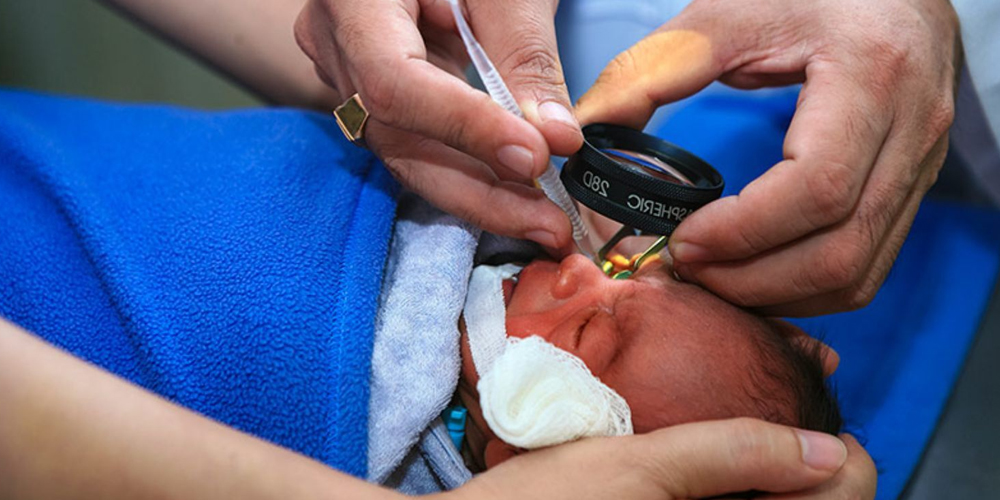NENO provides in house Retinopathy of prematurity screening and management for all preterm babies. NENO has senior professor of ophthalmology who has vast experience in neonatal and paediatric ophthalmic problems .
Retinopathy of Prematurity (ROP) screening is a critical component of neonatal care, particularly for premature infants. ROP is an eye condition that can occur in premature babies due to incomplete development of the blood vessels in the retina. To ensure early detection and appropriate management, here's an overview of ROP screening:

ROP screening typically begins around 4 to 6 weeks after birth, depending on the gestational age and weight of the baby. Infants who are born before 30-32 weeks of gestation or weigh less than 1500-2000 grams are considered at risk for ROP and require screening.
An ophthalmologist, specializing in pediatric ophthalmology, conducts the ROP screening. They use an ophthalmoscope, which may be a traditional handheld device or a digital wide-angle retinal imaging system, to examine the baby's eyes and assess the development of the retinal blood vessels.
ROP is categorized into stages based on the severity and extent of abnormal blood vessel growth in the retina. The stages range from mild (Stage 1) to severe (Stage 5), with varying degrees of intervention required based on the stage.
The frequency of ROP screening depends on the baby's gestational age, weight, and stage of retinal vascularization. Infants at higher risk may require more frequent examinations, typically every 1-2 weeks, until the retinal vessels have fully developed.
If ROP progresses to more advanced stages, treatment may be necessary to prevent vision loss. Treatments may include laser therapy or injection of medication into the eye to halt abnormal blood vessel growth. Timely identification and intervention are crucial to achieve optimal outcomes.
After the initial ROP screening and potential treatment, infants with ROP require regular follow-up care to monitor their eye health. The ophthalmologist will determine the appropriate schedule for ongoing assessments based on the severity of ROP and the presence of any residual or recurrent disease.
Effective collaboration and communication between neonatologists, ophthalmologists, and other healthcare professionals involved in the care of premature infants are essential. They need to work together to ensure timely screening, accurate assessment, and appropriate management of ROP.
ROP screening plays a crucial role in identifying and managing potential vision-threatening conditions in premature infants. Early detection and intervention help minimize the risk of severe visual impairment or blindness. It is important for healthcare providers to follow established guidelines and protocols for ROP screening, ensuring that at-risk infants receive the necessary examinations and interventions to safeguard their eye health.
